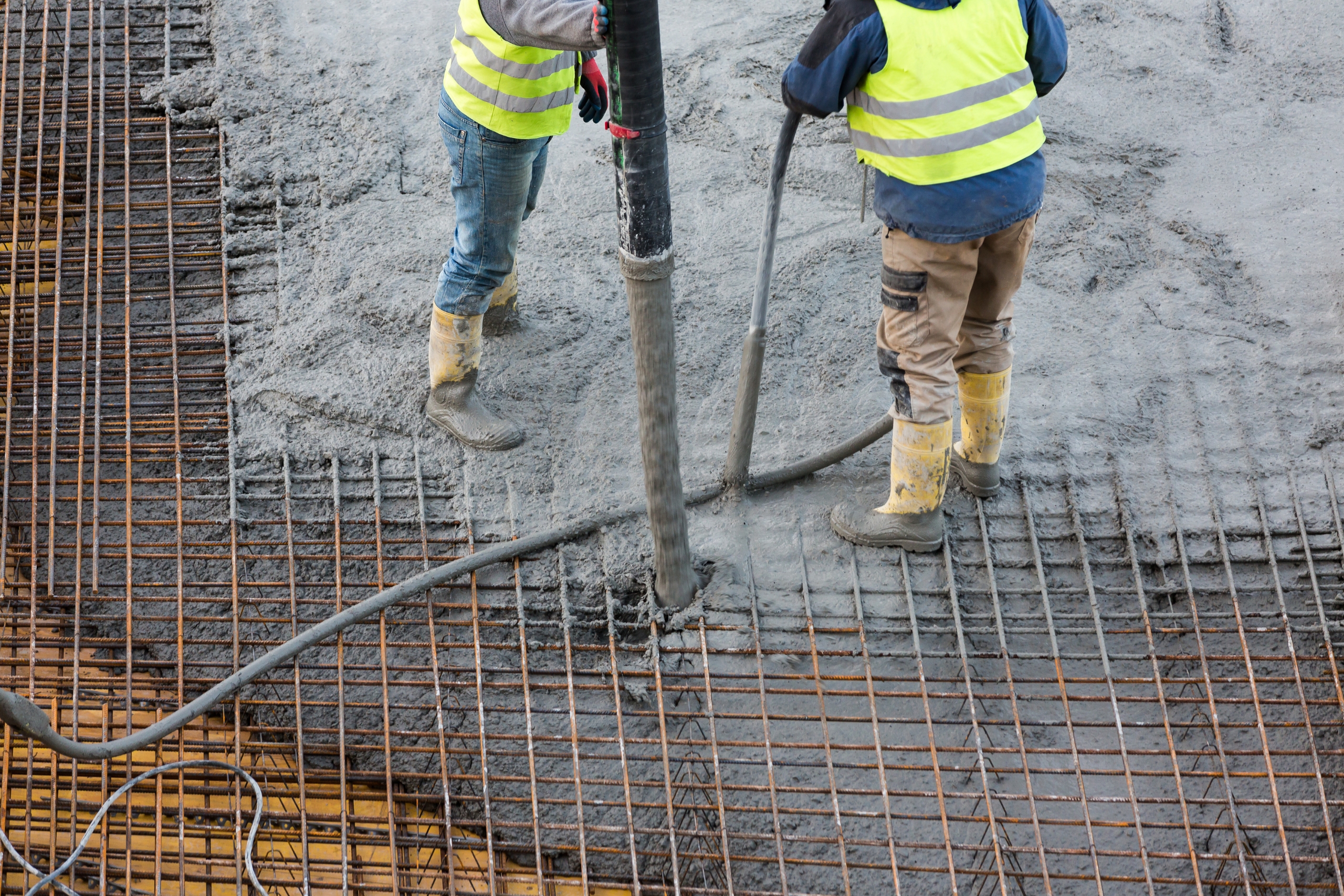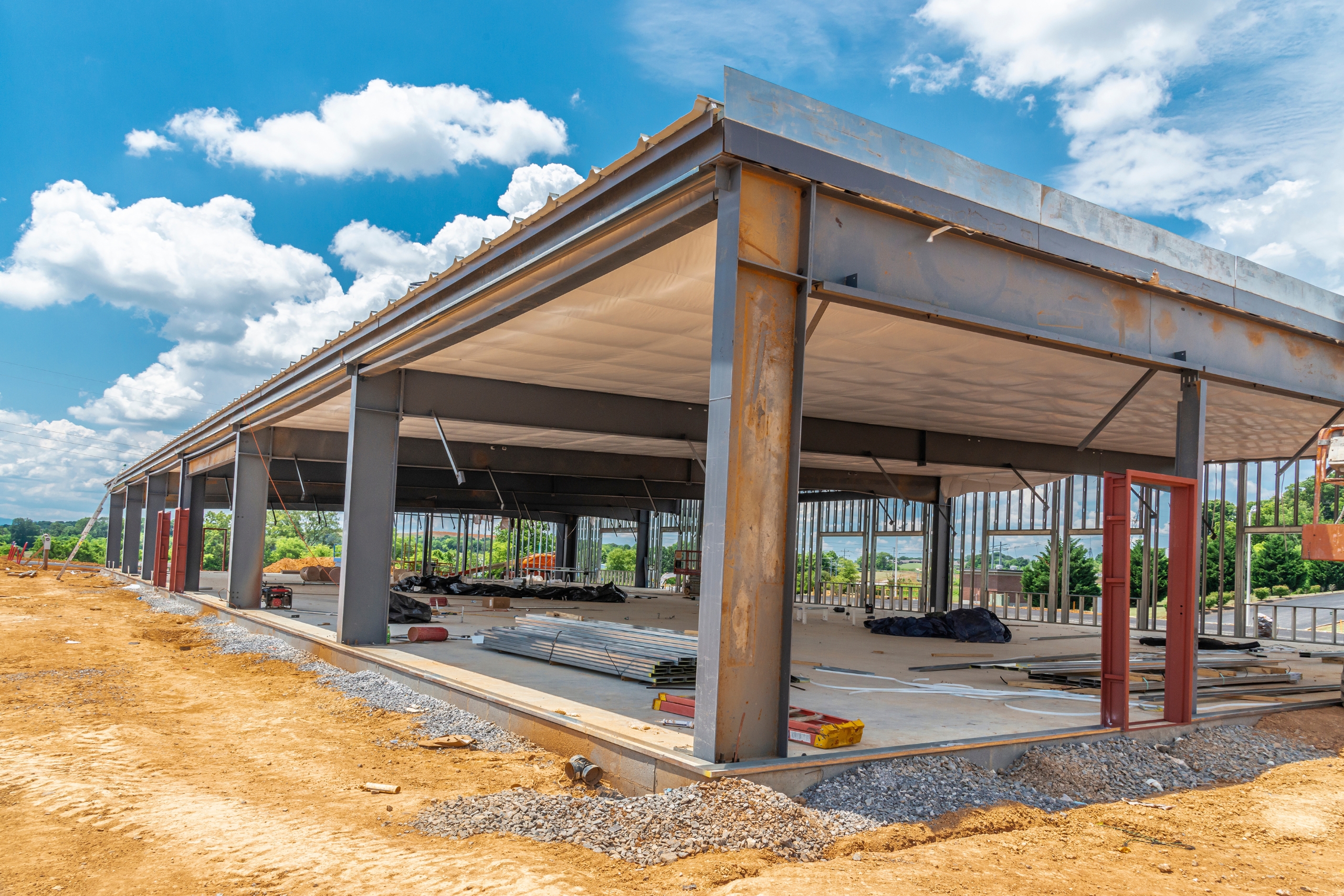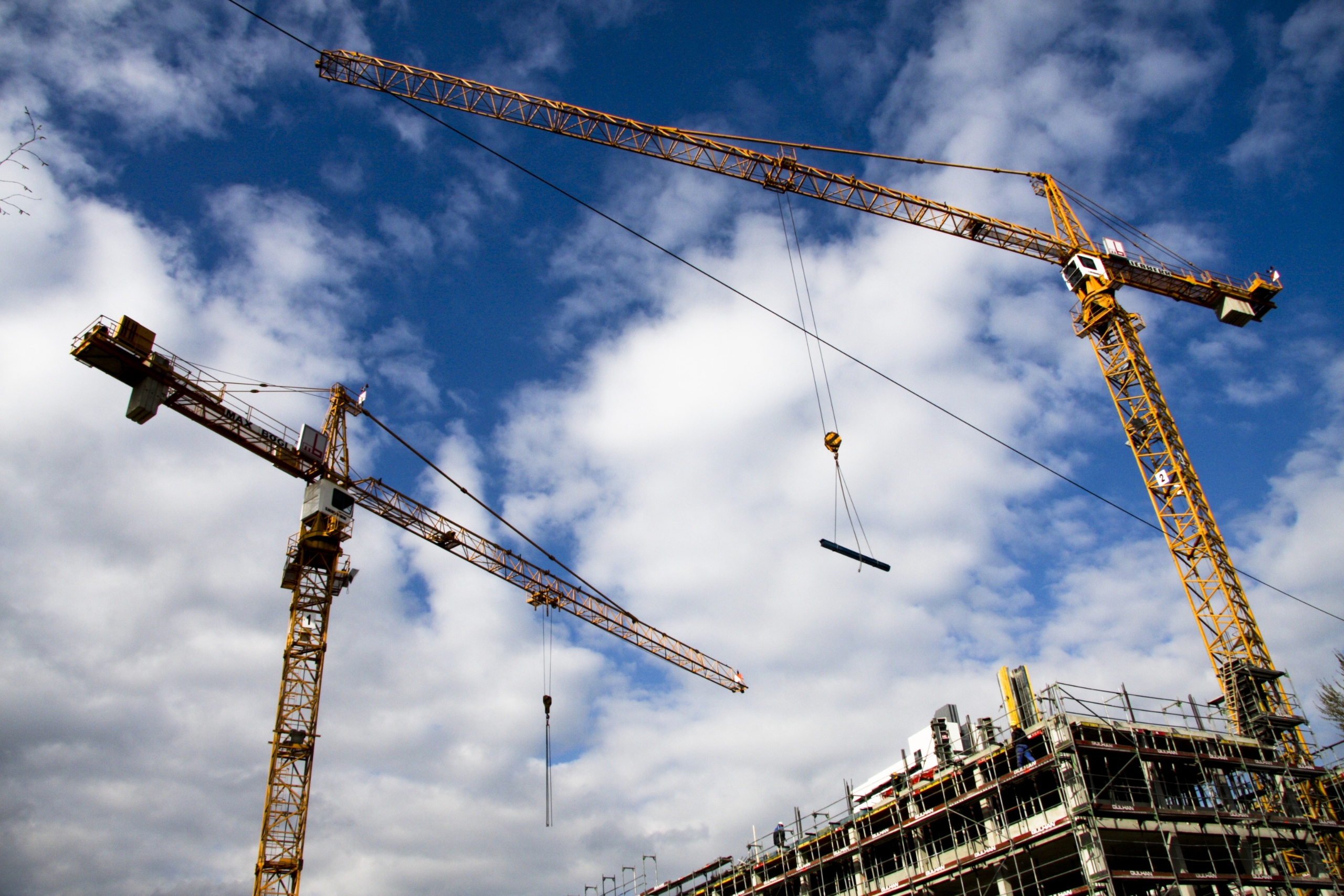Tenant improvement projects are all about transforming commercial spaces to meet the unique needs of their occupants. In Omaha, these improvements are becoming increasingly popular as business owners aim to create environments that are not only functional but also attractive and inviting. Whether it’s updating an office with the latest design trends or ensuring a retail space aligns with brand identity, tenant improvements can significantly enhance the user experience. As we move forward, certain trends are beginning to dominate the tenant improvement landscape in Omaha. This seasonal guide will walk you through some of the most impactful design and technology enhancements that are making waves. Whether you’re a business owner looking to refresh your space or a manager tasked with the planning, understanding these trends will help you make informed decisions. Modern Design Trends For many businesses, the open floor plan has become the go-to design choice, thanks to its flexibility and collaborative appeal. These layouts break down barriers, encouraging interaction and teamwork among employees. In Omaha, companies are embracing open spaces that allow for easier communication while adapting areas to suit various work styles. Alongside open floor plans, sustainable and eco-friendly materials are becoming more widespread. Business owners are opting for materials that not only look great but are kind to the environment. Choosing reclaimed wood, recycled metals, and other green options can contribute to more sustainable practices without compromising style. Another trend on the rise is the strategic use of natural light. By maximizing daylight, businesses can create brighter and more pleasant atmospheres, which can boost productivity and overall well-being. Many projects are now incorporating large windows and innovative designs to let in as much natural light as possible. Alongside this, smart lighting systems are being installed to adjust artificial lighting based on the time of day and occupancy, ensuring that spaces are well-lit and energy-efficient. Keeping these trends in mind can lead to a well-designed tenant improvement project in Omaha. By focusing on open, sustainable, and bright spaces, you can create an environment that not only meets the needs of its users but also keeps up with modern standards. Whether you’re ready to dive into a project or just exploring options, it’s essential to stay updated on these design movements. Technology Integration Technology is at the heart of many tenant improvement projects in Omaha. Businesses are increasingly looking at ways to seamlessly integrate technology into their workspaces. Automated HVAC systems now ensure energy efficiency and comfort, automatically adjusting temperatures based on occupancy and weather conditions. Smart security systems offer enhanced protection with features like remote monitoring and access control, adding an extra layer of security without compromising convenience. In addition, high-speed internet connectivity continues to be a priority for employers and employees alike. Ensuring a strong and reliable connection facilitates smooth operations and helps keep teams connected, whether they’re in the office or working remotely. With the continuous evolution of tech, staying ahead of the curve can be a distinguishing factor for workplaces looking to remain competitive and attractive to talent. Collaborative Spaces As businesses recognize the value of teamwork and collaboration, the demand for shared workspaces is growing. Spaces designed for collaboration often feature flexible furniture arrangements that can be easily moved and adjusted to accommodate different group sizes and activities. From brainstorming sessions to informal gatherings, these layouts support a dynamic work culture. Breakout zones are another key feature, providing employees with calm, informal areas to relax and recharge. These areas can include unique design elements such as modular seating, plants for a touch of nature, and writable walls for impromptu notes or creative displays. By encouraging interaction and innovation, collaborative environments can foster a sense of community and enhance overall productivity. Customization and Personalization Customization in tenant improvement projects is trending as businesses seek to create spaces that align with their unique identity. Tailoring a workspace means choosing design elements that reflect company values and culture. Branded interiors, such as color schemes and logo displays, can reinforce a sense of pride and belonging among employees and visitors. One example of personalization might involve creating custom workstations that cater to specific department needs, such as providing additional storage for teams that require more space for materials. By working with professional designers, businesses can achieve environments that are both practical and stylistically unique, offering a more personalized touch. Looking Forward Keeping up with the latest trends in tenant improvements can significantly enhance the functionality and aesthetic of any workspace. Embracing modern designs, integrating cutting-edge technology, and fostering collaboration through innovative spaces are just a few pathways to achieving a top-notch environment. Custom elements that reflect brand identity can make a world of difference in how a space feels and operates. Whether you’re planning to update an office or revamp a retail location, these trends offer valuable insights into crafting a space that meets contemporary standards while addressing the distinct requirements of its users. Sticking to these strategies can ensure your tenant improvement project remains both impactful and forward-thinking.Taking the next step in tenant improvement in Omaha can transform your workspace into a modern and efficient environment. If you’re looking to enhance functionality and aesthetics, reach out to PC Construction today for expert guidance and quality service. Our team is ready to assist you in creating a space that not only meets your needs but exceeds your expectations.
How to Choose the Right Concrete Contractor for Your Next Project
Choosing the right concrete contractor is a crucial step in ensuring your building project meets both your expectations and needed standards. Proper selection can make a significant difference between a flawless project and one beset by delays and challenges. For Omaha residents and businesses, the right contractor brings expertise along with a local understanding that enhances project efficiency. This knowledge leads to smoother communication with local suppliers and subcontractors, streamlining the construction process. Many face the challenge of finding reliable concrete contractors amidst a sea of options. Stories abound of projects going over budget, contractors missing deadlines, or work not meeting the expected quality. These concerns underline the importance of thorough research before making your choice. Fortunately, by following a structured approach, you can find a dependable contractor who will help bring your vision to life with minimal hassle. Research Local Concrete Contractors Focusing on local contractors for your concrete needs brings several benefits. They possess a deeper understanding of Omaha’s unique climate factors, construction regulations, and local building codes, ensuring compliance and efficiency. Moreover, working with local contractors often results in better project support and immediate attention to urgent issues. When starting your search, compile a list of potential contractors by: 1. Seeking recommendations from neighbors or friends who recently completed similar projects. 2. Checking online platforms and local directories to read reviews and ratings. 3. Consulting industry associations or community boards for trusted contractors. As you gather your list, prioritize checking for licenses and any necessary certifications. A licensed contractor not only meets regulatory standards but also assures reliability and professionalism. Look for evidence of past local projects, as this showcases a contractor’s familiarity with local weather conditions, soil types, and building materials suitable for Omaha. The contractor’s reputation with local suppliers and subcontractors can also be a good indicator of their reliability. While this research phase might seem time-consuming, it’s an investment toward achieving a seamless construction experience. By scrutinizing potential contractors carefully, you significantly increase the chances of your project being completed on time and to a high standard. Evaluate Experience and Expertise Understanding a contractor’s experience and expertise is key in making a well-informed decision. Contractors with substantial experience tend to deliver higher quality work, as they are familiar with potential challenges and know how to address them efficiently. One way to gauge this is by looking at the diversity and scale of past projects. A contractor who has managed both residential and commercial projects likely has a breadth of practical knowledge. When assessing experience, consider these points: 1. Request a portfolio showcasing completed projects. 2. Ask about the types of concrete work they specialize in—flatwork, decorative, or structural. 3. Inquire about their problem-solving strategies in past challenging projects. These insights will help you determine if they’re the right fit for your specific needs. Check References and Reviews Checking references and reviews serves as a reliability check. Honest feedback from previous clients provides a glimpse into the contractor’s work ethic, punctuality, and project handling. To ensure authentic reviews, prioritize those from reputable platforms where feedback cannot be altered. Reliable methods for verifying reviews include: – Contacting past clients directly if possible – Exploring platforms like Angie’s List or Better Business Bureau for unbiased feedback – Seeking out any reviews mentioning specific aspects of their work that you’re concerned about Thoroughly examining references helps you avoid unpleasant surprises during your project. Compare Quotes and Services Comparing quotes and services is important in balancing cost with quality. When you start collecting quotes, ensure each quote is detailed and transparent, including estimated costs of materials, labor, and any additional fees. To make an informed comparison, understand the services that differentiate one contractor from another. Consider these aspects when evaluating quotes: – What’s included in the pricing: materials, labor, project timeline – Additional services offered, like project management or ongoing maintenance Balancing cost with quality doesn’t just mean choosing the cheapest option; it involves understanding where each contractor places their emphasis and making a decision based on that balance. Making the Right Choice for Your Omaha Concrete Project Choosing a concrete contractor is a significant decision that impacts the success of your build. Recap the steps: researching local prospects, evaluating their expertise and previous work, and reviewing their references. Each step ensures that the contractor you choose aligns well with your project goals. Taking the time to follow these steps will likely prove valuable in the long run, ensuring a smoother project execution and higher satisfaction with the results. With careful selection, you secure a partner committed to turning your concrete project into a reality. Ready to start your next concrete project in Omaha with confidence? Connect with expert concrete contractors in Omaha at PC Construction. Our knowledgeable team is ready to assist you in bringing your vision to life with precision and dedication. Visit our contact page to start your project with professionals who understand your needs.
What to Expect During Preconstruction Planning
Starting a construction project can be an exciting venture, but it requires careful planning before any physical work begins. Preconstruction planning is a crucial phase that sets the stage for a successful project. It involves getting clear on your objectives, mapping out detailed plans, and ensuring that all regulatory requirements are understood and met. During this phase, business owners collaborate with architects, engineers, and other professionals to create a roadmap for the project. It’s the time to establish the project scope and make key decisions that shape the outcome. This proactive approach helps in preventing potential roadblocks and ensures that the project stays on time and within budget. Understanding what happens during preconstruction planning can alleviate concerns and improve collaboration between all parties involved. This guide covers essential aspects of preconstruction, providing valuable insights for anyone preparing to begin their next construction project. Establishing Project Objectives and Scope Setting clear project objectives and scope is a fundamental step in preconstruction planning. This process ensures the project starts on a solid foundation and that all team members are aligned with the end goals. Well-defined objectives guide the decision-making process and help measure the project’s success upon completion. To define project goals, it is essential to have a clear understanding of the desired outcome. Begin by asking questions such as: What is the primary purpose of the project? Who will use the completed space, and what are their needs? Once these questions are answered, it’s easier to establish a project scope that aligns with these goals. The scope defines the boundaries of the project, including what is and isn’t included in the plan. Identifying and documenting key deliverables is another critical aspect of establishing project objectives and scope. Deliverables are specific outcomes or items that must be completed to achieve the project goals. Examples include design drawings, completed foundations, or finished interior spaces. Clear documentation of these deliverables helps track progress and ensures all stakeholders understand what to expect at different stages. Stakeholder input plays a crucial role in shaping the project objectives and scope. Involving stakeholders—such as clients, end-users, and key team members—early in the process helps to gather diverse perspectives and address potential concerns. This collaboration ensures that the project reflects the needs and priorities of all involved parties, reducing the likelihood of future conflicts or changes. By taking the time to clearly define project objectives and scope, business owners can set a strong foundation for their construction project. It’s a proactive step that helps prevent misunderstandings and keeps the project on track from start to finish. Detailed Planning and Design Development The planning and design phases are where the vision for the project begins to take shape. This stage focuses on translating the project’s goals and scope from a conceptual idea into detailed plans that guide the construction process. In the planning phase, the project team works together to outline a comprehensive project plan. This involves setting timelines, identifying resources required, and establishing milestones to track progress. By having a detailed plan, all team members can work together efficiently and ensure the project stays on schedule. The design development phase involves integrating architectural and engineering inputs to create a cohesive plan. Architects and engineers collaborate to refine the project’s design, ensuring it meets aesthetic, functional, and structural requirements. This stage often includes crafting preliminary drawings and specifications, which serve as the blueprint for construction. Creating detailed drawings and specifications is a key aspect of design development. These documents provide precise instructions for how the project should be built, including dimensions, materials, and construction techniques. They are essential for ensuring that the final structure aligns with the original design intent and that all elements fit together seamlessly. Throughout planning and design, effective communication and coordination between all team members are essential. Regular meetings and discussions help clarify any uncertainties and address potential design conflicts before they become significant issues during construction. By focusing on detailed planning and design development, business owners can ensure their project is well-prepared for the actual construction phase. This structured approach allows for a smoother transition from design to execution, minimizing the risk of delays or cost overruns. Budgeting and Cost Estimation Crafting an accurate budget is a critical part of preconstruction planning. The budgeting process involves identifying all financial aspects of the project to ensure effective resource allocation. Key components of a comprehensive project budget include site preparation, labor costs, materials, permits, and contingency funds. Conducting accurate cost evaluations requires detailed analysis. Begin by gathering estimates for each project component from reliable sources, such as suppliers and contractors. This helps outline realistic financial expectations. It’s essential to verify the estimates with industry benchmarks to ensure they reflect current market conditions. Aligning the budget with project goals requires strategic planning. Prioritize spending on elements that directly impact the project’s success, like high-quality materials or skilled labor. Consider phasing the project to manage costs effectively. Regularly reviewing and adjusting the budget as needed helps maintain financial control throughout the construction process. Successful budgeting sets the stage for a financially stable project, avoiding unforeseen expenses that can derail progress. By having a detailed and well-researched budget, stakeholders can make informed decisions that keep the project on track. Reviewing Permits and Compliance Requirements Before construction begins, obtaining the necessary permits and approvals is essential. Common permits include building permits, zoning approvals, and environmental clearances. Obtaining these early in the process helps avoid delays and ensures the project meets all legal requirements. The process for ensuring regulatory compliance involves understanding the specific codes and standards governing the project location. Research local building codes and work with professionals who are familiar with regulatory processes. They can assist in preparing the required documents and submitting applications to the appropriate authorities. Staying informed about local building codes and standards is crucial for compliance. Regulations can change, so it’s important to keep updated with any modifications that may affect the project. This knowledge ensures the project adheres to legal requirements, avoiding costly fines
Essential Steps to Plan a Commercial Construction Project Successfully
Undertaking a commercial construction project is a complex endeavor that requires thorough planning and strategic decision-making. From defining clear goals to managing resources effectively, every step plays a critical role in the project’s success. Whether you’re building a new office space or expanding a current facility, having a well-structured plan is key. A successful project begins with establishing well-defined objectives and conducting a thorough feasibility study. This planning phase helps identify potential challenges and provides a roadmap to navigate them. Additionally, assembling a skilled and collaborative team of professionals ensures that all aspects of the project are covered, from design to completion. By focusing on detailed planning and clear communication, business owners can ensure that their commercial construction projects run smoothly. This guide outlines critical stages in the planning process to help you achieve your construction goals efficiently. Defining Project Goals and Objectives Setting clear goals and objectives is the cornerstone of any successful commercial construction project. Having a well-defined set of goals helps guide the entire process, ensuring everyone involved works toward the same outcomes. When clear project goals are established, they act as a roadmap for decision-making and resource allocation. This clarity is crucial for maintaining focus and direction throughout the project lifecycle. Objectives further refine the project’s scope by laying out specific and measurable steps to achieve the overall goals. These objectives serve to outline what the project will accomplish, the timeline for completion, and the resources required. They help define the project’s limits, thereby preventing scope creep and unexpected complications. By having articulated objectives, project teams can better manage expectations and deliver results that meet the initial vision. When establishing goals, consider these guiding questions: – What is the primary purpose and desired outcome of the project? – Who are the key stakeholders, and what are their priorities? – What constraints or limitations should be considered? – How will the project’s success be measured and evaluated? – What are the potential risks, and how will they be managed? By addressing these questions, business owners can establish a solid foundation for their project, leading to informed planning and execution decisions. Conducting a Feasibility Study and Budget Planning Before diving into construction, it’s essential to conduct a thorough feasibility study. This process evaluates the practicality of the project, considering numerous aspects like site conditions, regulatory requirements, and potential obstacles. By assessing the project’s viability, stakeholders can identify potential risks and develop strategies to mitigate them. This step is crucial as it lays the groundwork for informed decision-making and aligns project proposals with real-world constraints. Budget planning goes hand in hand with the feasibility study. Estimating costs involves reviewing all potential expenditures, from materials and labor to permits and contingency reserves. An accurate budget provides a financial framework that supports informed planning and resource allocation. Steps to establish a comprehensive budget include gathering input from all project stakeholders, considering historical cost data, and consulting with experts like contractors and cost estimators. Once the initial budget is outlined, explore funding options such as bank loans, investors, or grants to ensure financial resources align with project needs. Financial planning strategies may include setting aside contingency funds for unexpected expenses and regularly reviewing the budget to adjust allocations as needed. This proactive approach ensures the project remains financially sound, minimizing the risk of financial setbacks or delays. Assembling the Right Team Building a commercial project requires a cohesive team of skilled professionals. Each member plays a vital role in ensuring the project’s success. Key team members include architects, engineers, and general contractors, among others. These experts bring their unique perspectives and skills to the table, contributing to the seamless design, construction, and completion of the project. Selecting the right professionals is crucial. Start by researching potential candidates and reviewing their portfolios. Check references and credentials to ensure their expertise aligns with your project needs. Conduct interviews to gauge their communication skills and willingness to collaborate. Personal recommendations and industry networks can also be valuable in finding reputable professionals known for their reliability and quality work. Strong communication and collaboration within the team are essential. When everyone works together effectively, ideas flow easily, problems are solved more efficiently, and the overall process is smoother. Regular meetings and clear communication channels help maintain alignment and address issues promptly. With a well-assembled and coordinated team, projects are more likely to be completed on time and within budget. Managing the Project Timeline and Milestones Creating a detailed timeline with key milestones is fundamental to managing a commercial construction project. A well-crafted timeline serves as the roadmap that guides the project through various stages, from initial planning to final completion. It helps keep all team members informed about their roles and responsibilities, ensuring everyone is on the same page. To begin, break down the project into major phases and set clear start and end dates for each phase. Identify key milestones, such as permit approvals, material deliveries, and completion of major construction phases. This structure helps track progress and assess whether the project remains on schedule. For example, a sample timeline might include milestones for design development, ground breaking, structural framework completion, and final inspections. Staying on track involves regular project updates and flexibility for adjustments. Set up routine check-ins to review progress and tackle any challenges that arise. Being adaptable allows the team to respond to unexpected changes or delays without compromising the overall timeline. This proactive approach ensures the project remains aligned with its goals and objectives. Conclusion Embarking on a commercial construction project is a significant undertaking that requires meticulous planning and execution. By defining clear goals, conducting thorough feasibility studies, assembling a competent team, and managing timelines effectively, you ensure a higher likelihood of project success. Each step in the planning process lays the foundation for a smooth construction experience, minimizing risks and maximizing outcomes. With a comprehensive approach, your project not only meets current needs but also anticipates future growth and challenges. As you move forward with your commercial construction plans,
How to Plan a Sustainable Commercial Construction Project
Sustainability is more than a trend—it’s a necessity for businesses planning construction projects today. By focusing on eco-friendly methods and materials, businesses can create structures that benefit the environment while saving on costs in the long run. A sustainable commercial construction project starts with understanding core principles and setting clear goals. These goals guide decisions and help measure success throughout the project. Incorporating sustainable practices from the beginning is key to achieving a balance between functionality and environmental responsibility. Choosing the right materials and collaborating with experienced team members are also crucial steps. Selecting eco-friendly options and utilizing modern techniques helps reduce environmental impact. Teams with a shared vision make it easier to reach sustainability targets, ensuring the project is not only green but also efficient and successful. Understanding Sustainable Construction Principles Sustainable construction focuses on minimizing the impact on the environment while meeting the needs of the present without compromising future generations. The key principles include energy efficiency, resource conservation, and indoor environmental quality. By adopting these principles, construction projects can significantly reduce their carbon footprint. Energy efficiency involves using less energy to perform the same task, which can be achieved through various means like implementing energy-efficient systems and optimizing building designs. Resource conservation is another important aspect, focusing on minimizing waste and utilizing renewable materials. Good indoor environmental quality ensures a healthy and comfortable environment for building occupants. Building sustainably provides many benefits beyond environmental protection. It often results in long-term cost savings for building owners. Energy savings, reduced waste disposal costs, and improved resource efficiency contribute to financial benefits. Moreover, sustainably designed buildings tend to have higher market value and appeal to environmentally conscious tenants or buyers. Integrating sustainability at the beginning of the construction process is crucial. Early planning can incorporate sustainable practices into the design and material selection phases, ensuring that sustainability objectives are met throughout the project. This proactive approach avoids costly redesigns and adjustments later in the construction phase. Setting Clear Sustainability Goals When kicking off a sustainable construction project, it’s vital to set clear and measurable sustainability goals. These objectives can guide decisions and shape the project’s direction. Here are some common sustainability goals for commercial projects: 1. Energy Efficiency: Reducing energy consumption through modern technologies or renewable energy sources. 2. Water Conservation: Implementing systems to reduce water use or manage stormwater effectively. 3. Waste Reduction: Minimizing construction waste through careful planning or recycling. Prioritizing these goals depends on the specific needs and context of the project. Begin by assessing the project’s site, type, and expected use. These factors help in identifying the most relevant goals. Once prioritized, it’s important to establish metrics to measure progress. Regular assessments ensure that the project remains aligned with its sustainability targets. Green building certifications, like LEED or BREEAM, play a significant role in setting and achieving sustainability goals. These certifications provide frameworks and benchmarks for sustainable practices, offering a structured approach to green building. Pursuing certifications not only validates efforts but also enhances the building’s reputation and marketability. Integrating clear goals at the beginning encourages accountability and ensures the project remains focused on sustainability. Establishing strong objectives and regularly tracking progress can lead to significant environmental and financial benefits over the project’s lifecycle. Choosing Sustainable Materials and Methods Selecting the right materials is essential for sustainable construction projects. Opting for eco-friendly materials like recycled steel, bamboo, or sustainably sourced wood reduces the environmental impact and promotes resource conservation. These materials not only lessen the depletion of natural resources but also contribute to healthier environments by minimizing pollutants and toxins. Sustainable construction methods play a critical role in reducing the project’s overall footprint. Techniques like prefabrication can minimize waste, while green roofs and walls enhance insulation and reduce energy consumption. Employing modular construction strategies may also streamline the building process and reduce on-site waste, proving to be both economical and environmentally sound. Life-cycle assessments (LCAs) are crucial when choosing materials, as they evaluate the environmental impact of materials over their entire lifespan—from extraction to disposal. Incorporating LCAs helps project managers identify the most sustainable options, ensuring that every component of the building supports sustainability goals. This approach leads to more informed decisions and reinforces the commitment to sustainable principles throughout the construction process. Collaborating with the Right Team Assembling the right team is a cornerstone of any successful sustainable construction project. Look for partners who have experience and expertise in sustainable building practices. Their knowledge and real-world applications can bring fresh ideas and innovative approaches to the table, making sure the project aligns with sustainability objectives from start to finish. Effective collaboration with your team enhances the project’s sustainability outcomes. Schedule regular meetings and brainstorming sessions to discuss progress, challenges, and potential improvements. A collaborative environment encourages creativity and ensures that everyone is on the same page regarding sustainability goals. Consistent communication and a shared vision are vital for achieving sustainable success. Make sure that all team members—from contractors to designers—are aware of the sustainability targets. This unified approach promotes accountability and allows for quick problem-solving, keeping the project on track and aligned with its green aspirations. Conclusion A sustainable commercial construction project involves careful planning, informed decisions, and a commitment to eco-friendly practices. By understanding sustainable principles, setting clear goals, selecting the right materials, and collaborating with an experienced team, businesses can create structures that are environmentally sound and cost-effective. Now is the time to bring your vision of a sustainable building to life. At PC Construction, we have the expertise and dedication to guide your project every step of the way. Our team is ready to partner with you to achieve your sustainability goals, delivering quality and innovation that stand the test of time. Contact us today to start your commercial construction in Omaha with a greener future in mind.






